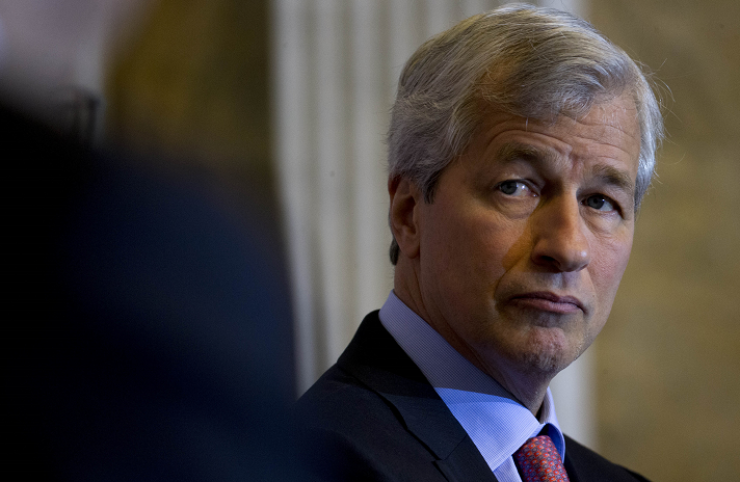An in-depth report on cryptocurrencies just released by JPMorgan Chase says the class of assets spawned by bitcoin is here to stay, and may even represent a smart investment, despite the unlikelihood that digital coins will ever displace national currencies such as the dollar and euro.
Highlighting the incredible returns enjoyed by many cryptocurrency investors, as well as the assets' low correlation to traditional investments, such as stocks and bonds,
Had Las Vegas oddsmakers been forced to choose the Wall Street bank most likely to admit the value and staying power of cryptocurrencies, it seems unlikely that any would have chosen JPMorgan. Just five months ago, the bank's CEO, Jamie Dimon, was railing against bitcoin, calling it a "fraud." Any of his employees caught trading the speculative asset, he said, would be fired "for being stupid."
The new report strikes an altogether more positive note. While noting the speculative fervor that fuels cryptocurrency markets, the report's authors say the markets "have been sending the right signals in recent months."

The report even admits the truth that diehard bitcoiners have been proclaiming for years, that the traditional financial system affords people little privacy, and that bitcoin and digital currencies will consequently always have a fanbase "among players who desire greater decentralization, peer-to-peer networks and anonymity, even as the latter is under threat."
As bullish as this might sound, the report doesn't necessarily represent a full about-face for JPMorgan. It points out that cryptocurrencies face stiff headwinds not only from regulators concerned about money laundering and fraud but also from the technology itself — in the form of rising mining costs — and from hackers, who time and again have made off with millions of dollars in digital tokens.
And while blockchain technology might make inroads in payments, the analysts say, "we do not see cryptocurrencies competing with central bank-issued money for lawful transactions," in part because governments will guard jealously their role as the sole issuers of legal tender. The more people adopt digital currencies as a medium of exchange, the harder governments will fight them. The "huge returns from running a central bank," according to the report, are just too good to give up.
Indeed, central bankers have lately pulled no punches in their attempts to knock out global enthusiasm for cryptocurrencies. Late last year, Bank of France Gov. Francois Villeroy de Galhau called bitcoin "in no way a currency, or even a cryptocurrency," but rather a "speculative asset" whose value had "no economic basis."
As for whether the past will be prologue in regard to investor profits, the report's authors say "that is a big if." After all, such "astronomic returns" can't last forever. And for now, the opportunity for banks to profit by trading bitcoin and other cryptocurrencies directly "appears relatively limited," the report says.
What nobody can say for certain, though, is how much more room the asset class has left to run. Bitcoin is still in its first decade, and many other digital assets are even newer. Some are tokens intended for use on software platforms that have yet to launch.
The asset class is consequently in what investors call a "price discovery phase," marked by wild swings and loads of hype. But longevity may bring stability, according to the JPMorgan analysts. "If [cryptocurrencies] survive the next few years and remain part of the global market," the report says, "then they will likely have exited their current speculative phase."
What that market will look like is anyone's guess.





